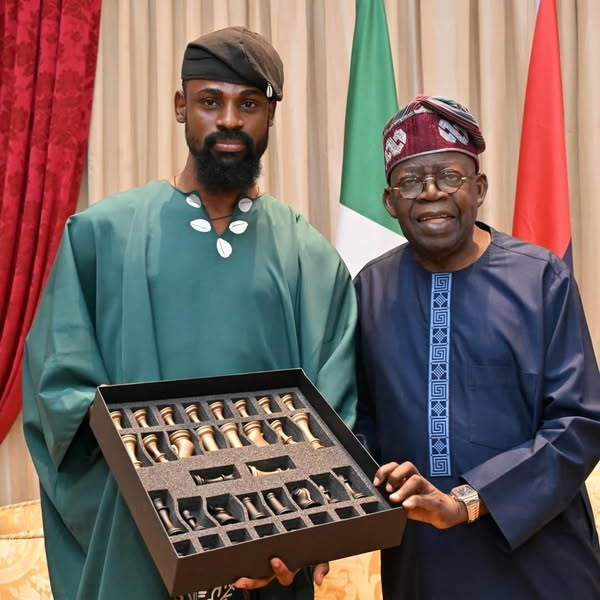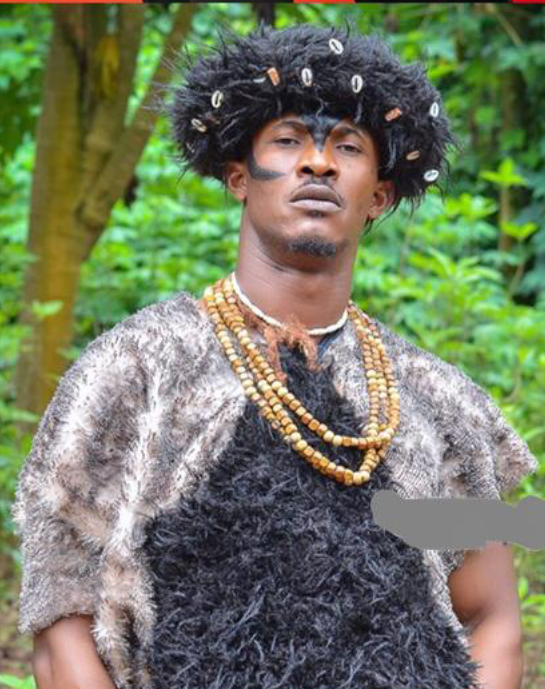
Tunde Onakoya Meets President Tinubu, Shares Bold Vision for Africa’s Largest Chess and STEM Institute

In a remarkable convergence of ambition, recognition, and purpose, Nigerian chess master and education advocate Tunde Onakoya took a significant step toward realizing his dream of transforming the educational landscape in Africa. Onakoya, widely celebrated for his grassroots initiative "Chess in Slums," was recently received at the Presidential Villa in Abuja by the President of the Federal Republic of Nigeria, His Excellency Bola Ahmed Tinubu. The meeting, which Onakoya described as an honor and a humbling moment in his life, marks a pivotal milestone in his long-standing mission to use chess as a vehicle for education, empowerment, and social change.
“Honored to have been graciously received by His Excellency, the President of the Federal Republic of Nigeria,” Onakoya said in a heartfelt statement following the meeting. His words, delivered with deep gratitude and respect, reflect more than just a ceremonial visit; they carry the weight of a vision nurtured in the streets of Lagos and now echoing within the highest corridors of political power.
Tunde Onakoya’s journey from the slums of Ikorodu to international acclaim is one that has inspired millions across Nigeria and beyond. Known for teaching underprivileged children how to play chess and using the game to teach logic, discipline, and strategic thinking, Onakoya has successfully combined passion and purpose into a movement. The meeting with President Tinubu was not merely a photo opportunity but a platform to present a bold and transformative plan—to build the largest Chess and STEM (Science, Technology, Engineering, and Mathematics) institute in Africa.
While exact details of the proposed institute are still under wraps, Onakoya has made it clear that the vision transcends chess. It is about creating a learning environment where underserved children can discover their potential through intellectual empowerment, technological exposure, and strategic development. This future-facing educational model, deeply rooted in African realities, seeks to bridge the gap between talent and opportunity, especially among the continent’s youth.
The audience with President Tinubu signals a potential shift in how such grassroots movements are perceived at the national level. The President’s reception of Onakoya reflects a growing awareness among Nigerian leadership of the urgent need to invest in alternative education models that cater to the evolving demands of the 21st century. With the country’s youth population projected to rise dramatically in the coming decades, initiatives like Onakoya’s could play a crucial role in reshaping Nigeria’s socio-economic trajectory.
Onakoya, who earlier this year broke the world record for the longest chess marathon to raise funds for educational outreach, has consistently shown that innovation and resilience can flourish even in the most unlikely places. His efforts have garnered support from global figures and organizations, but his roots remain firmly planted in Nigeria. By engaging directly with the nation's top leadership, he is signaling a readiness to scale up his impact with institutional backing and broader policy alignment.
Social media was abuzz following the announcement of the meeting, with Nigerians from all walks of life praising the development as a sign of hope. Many expressed admiration for Onakoya’s courage and vision, while others emphasized the importance of the government supporting such transformative initiatives. The phrase “Chess in Slums to the Villa” quickly began trending, encapsulating the gravity and symbolism of the moment.
Beyond symbolic value, however, the next phase will require concrete commitments and sustained collaboration. Building an institute of this scale will demand not just governmental endorsement but also robust partnerships across public and private sectors. Onakoya’s ability to navigate these spheres—while staying true to his grassroots origins—will be critical in the coming months. The chess master is no stranger to strategy, and if his past work is any indication, he is already several moves ahead.
What sets this initiative apart is its hybrid approach. By intertwining chess with STEM, Onakoya is not merely advocating for sport or coding bootcamps. He is proposing an ecosystem where critical thinking meets scientific inquiry, where creativity is nurtured alongside discipline. The model challenges traditional classroom setups and encourages experiential learning—offering children not just education but transformation.
This visit also comes at a time when Nigeria, like many African countries, is grappling with challenges in its education sector, including underfunded schools, poor infrastructure, and limited access to quality teaching. Onakoya’s vision presents a complementary pathway—one that recognizes the unique learning styles and realities of marginalized children, and one that leverages tools like chess to foster intellectual and emotional intelligence.
It’s not just about building an institution; it’s about redefining what education means in a Nigerian context. For children who have been overlooked by conventional systems, this could be their first real chance at a future shaped by intellect rather than circumstance. For parents, educators, and policymakers, it’s a call to imagine a Nigeria where talent is not wasted but cultivated with intention and care.
As Onakoya continues his journey, the backing of President Tinubu could prove to be a game-changer—both literally and figuratively. Whether this translates into funding, land allocation, policy integration, or mentorship remains to be seen. But one thing is clear: the vision has moved from the streets to the seat of power, and the conversation around educational reform in Nigeria will never be the same.
In a world where visionaries are often dismissed until they succeed, Tunde Onakoya is challenging the narrative. With a chessboard in one hand and a blueprint for change in the other, he is reminding the continent—and indeed the world—that the power to transform lies not just in classrooms and budgets, but in belief, strategy, and the willingness to act.
The path ahead is undoubtedly steep, but for Tunde Onakoya and the thousands of children he represents, this is just the opening gambit in a much larger game—one where the ultimate prize is not checkmate, but a future full of promise.


